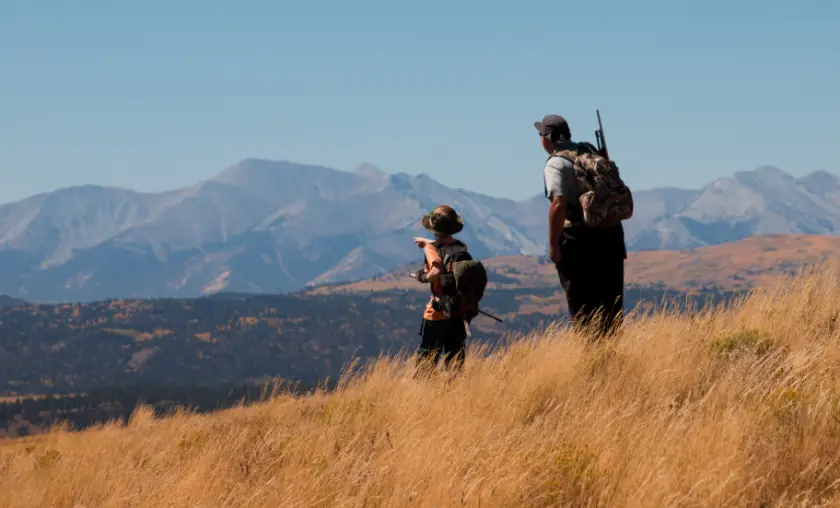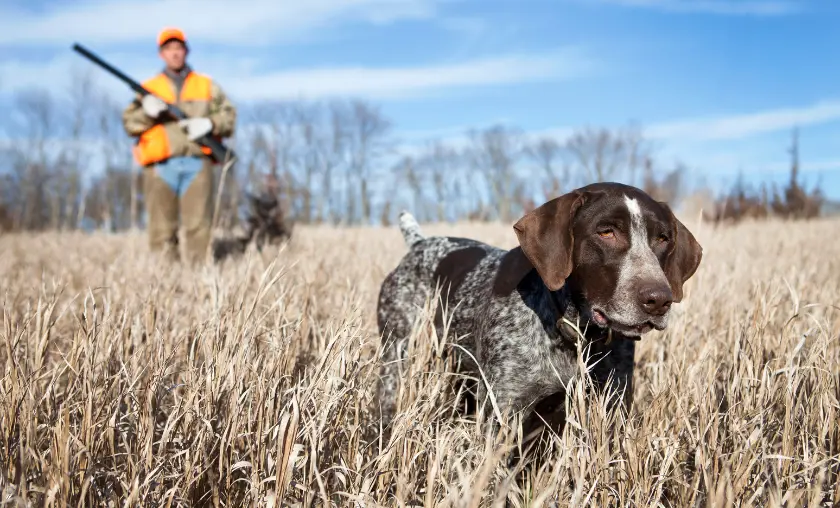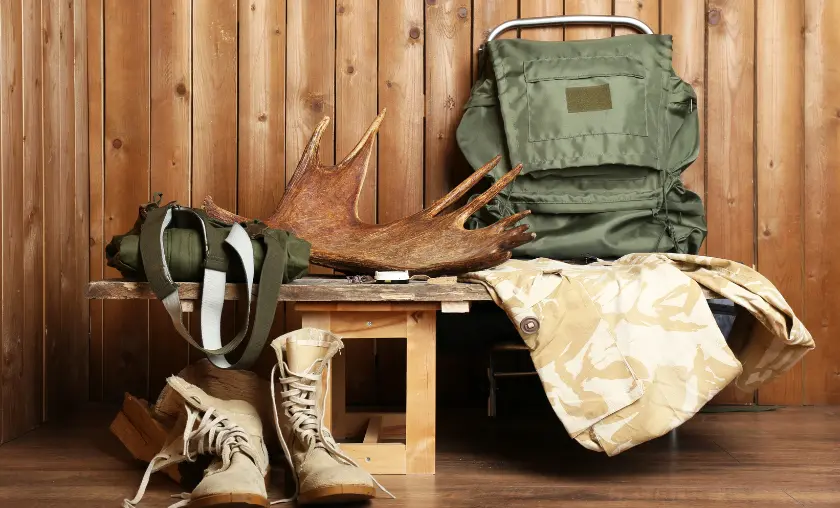Hunting is not just a sport; it’s a responsibility that comes with ethical and safety considerations. Hunting Ethics and Safety guidelines are vital for the well-being of both hunters and wildlife. These principles help ensure sustainable hunting practices and contribute to the preservation of ecosystems.
This introduction delves into the core concepts of hunting ethics and safety, emphasizing the importance of responsible and respectful behavior in the great outdoors.
Hunting Ethics and Safety
The Basics of Safe Hunting
Responsible and safe hunting practices are essential for the well-being of both hunters and the environment. Hunting plays a crucial role in wildlife conservation and management when done responsibly. It helps control animal populations to prevent overpopulation and habitat destruction, ensuring the health and balance of ecosystems.
Responsible hunters adhere to hunting regulations and quotas set by authorities, contributing to the sustainability of wildlife populations. They also engage in ethical hunting practices, prioritizing clean kills and minimizing animal suffering and waste.
Furthermore, safety is paramount in hunting, as firearms and outdoor environments pose inherent risks. Following safety guidelines and protocols is imperative to prevent accidents and injuries.
Ethical Hunting
Respecting Wildlife & Ecosystems
Ethical hunting goes beyond the pursuit of game; it embodies a deep respect for wildlife and the environment. Hunters who adhere to ethical principles prioritize fair chase, obey hunting laws and regulations, and aim for clean and humane kills. They also actively contribute to conservation efforts, ensuring that hunting remains sustainable for generations.
- Fair Chase: Ethical hunters follow the principle of fair chase, ensuring that their hunting methods and tools give game animals a reasonable chance to escape and avoid unnecessary suffering.
- Respect for Wildlife: Hunters show respect for wildlife by taking only what they intend to use and not wasting any part of the animal. They also refrain from harassing or disrupting non-target species.
- Compliance with Laws: Ethical hunters strictly adhere to hunting laws and regulations, obtaining the necessary licenses and permits. They report their harvest and participate in wildlife management programs.
- Humane Practices: Ethical hunters prioritize humane kills, using proper shot placement and selecting appropriate firearms or archery equipment to minimize an animal’s suffering.
- Conservation Stewardship: Ethical hunters actively contribute to conservation efforts through habitat restoration, financial support for wildlife initiatives, and responsible land management practices.
Ultimately, ethical hunting is a commitment to being a responsible steward of the natural world while enjoying the age-old hunting tradition.
Safety First
The Foundation of Responsible Hunting
Safety is paramount in responsible hunting. Ethical hunters prioritize safety for themselves, fellow hunters, and the general public. They follow safety rules, including safely handling firearms or archery equipment, wearing bright orange clothing to remain visible, and always positively identifying their target before shooting. Additionally, they maintain a strong knowledge of the area they’re hunting in and communicate their plans to others.
- Firearm Safety: Ethical hunters treat every firearm as loaded and keep the muzzle pointed in a safe direction. They only load their weapons when ready to shoot and unload when not in use.
- Hunter Education: Ethical hunters often undergo hunter education courses to learn about firearm safety, wildlife conservation, and hunting regulations, promoting responsible behavior.
- Proper Identification: They never shoot at unidentified targets or movements. Positive target identification is crucial to prevent accidents and ensure they harvest the intended game.
- Communication: Ethical hunters inform others of their hunting plans and locations. They use communication devices like radios or cell phones for safety and coordination.
- First Aid & Survival Skills: Basic first aid and survival skills are essential. Ethical hunters are prepared for unexpected situations and can respond effectively in emergencies.
By prioritizing safety, ethical hunters ensure that hunting remains a safe and enjoyable activity for everyone involved.
Know the Laws
Adhering to Regulations
Knowing and obeying hunting laws and regulations is fundamental to ethical hunting. Hunters are required to understand the specific rules governing seasons, bag limits, and hunting methods in their region.
Ethical hunters obtain the necessary permits and licenses and report their harvest as mandated by law. Respecting these regulations is not only a legal obligation but also essential for wildlife conservation and maintaining the sustainability of hunting practices.
- Seasons & Bag Limits: Hunters must adhere to set seasons (timeframes) for hunting various game species and respect bag limits, which dictate the number of animals one can legally harvest during a season. These regulations are in place to ensure sustainable populations.
- Hunting Licenses & Permits: Hunters typically require valid licenses and permits, which may vary by species and location. Obtaining these documents demonstrates compliance with state and federal laws.
- Firearm Safety & Ownership: Hunters must follow firearm safety guidelines and possess legal firearms, often subject to registration and other regulations to prevent misuse.
- Hunting on Private Lands: When hunting on private property, hunters must obtain proper permissions from landowners. Trespassing or hunting without consent is illegal.
- Reporting & Tagging: After a successful hunt, hunters are often required to report their harvest and tag the animal appropriately. This data is crucial for wildlife management and conservation efforts. Failure to do so can result in legal penalties.
It ensures that hunting remains a responsible and ethical outdoor activity that benefits both hunters and the environment.
Hunting Equipment
Maintaining & Using Safely
Responsible hunting involves the ethical treatment of wildlife and the safe and proper use of hunting equipment. This includes firearms, bows, ammunition, and other gear. Maintaining equipment in good working order is paramount to ensuring the hunter’s safety and humane hunting. Regular cleaning and maintenance help prevent accidents and ensure accurate shots.
Additionally, hunters should be well-trained in handling their chosen equipment, understanding safety features, and practicing safe shooting practices, such as always treating firearms as if they are loaded and keeping the muzzle pointed in a safe direction.
Safe Handling and Maintenance of Firearms & Gear
This commitment to equipment safety aligns with the ethical principles of hunting, promoting a safer and more enjoyable experience for all.
Scouting & Preparation
Key to Ethical Hunts
Scouting and preparation are essential components of ethical hunting. Before heading into the field, responsible hunters take the time to study the terrain, learn the habits of their target species, and understand the local ecosystem. This increases the chances of a successful hunt and minimizes the impact on wildlife and their habitats. Ethical hunters respect nature by leaving no trace, knowing the area’s regulations, and carrying the necessary permits.
Significance of Research & Preparation in Ethical Hunting
They understand that a well-prepared and informed hunt is more likely to succeed and ensures that hunting remains a sustainable and respectful tradition.
Shot Placement & Clean Kills
Minimizing Suffering
Ethical hunters prioritize shot placement to ensure clean and humane kills. This means aiming for vital organs to swiftly and efficiently take down the game, minimizing suffering. Proper shot placement demands accuracy and knowledge of the animal’s anatomy, emphasizing the importance of skill development and practicing marksmanship.
Responsibility for Making Swift & Humane Kills
Ethical hunters understand that a well-placed shot is more humane and respect the game they pursue and the principles of responsible hunting.
Hunting with Respect
Trophy & Meat Utilization
Hunting with respect involves valuing both the trophy and the meat that can be obtained from the game. Ethical hunters prioritize the responsible and sustainable use of wildlife resources. While trophies like antlers or horns can be a part of the hunting experience, it’s equally important to use the harvested animal for meat whenever possible. This ensures that the hunt contributes to food consumption, reducing waste and honoring the life of the animal taken.
- Full Meat Utilization: Ethical hunters prioritize using as much of the animal as possible, minimizing waste. This includes consuming the meat and, when applicable, using other parts like bones and hides for various purposes.
- Responsible Trophy Handling: While trophies like antlers or horns can hold sentimental value, ethical hunters ensure these parts are harvested with care and respect. They avoid wasteful practices such as taking a trophy and leaving the rest of the animal behind.
- Donation to Charity: Some hunters choose to donate surplus game meat to local charities or food banks, helping those in need and ensuring that the animal’s sacrifice serves a purpose beyond personal consumption.
- Sustainable Resource Management: Ethical hunters contribute to wildlife conservation by supporting practices that maintain healthy populations of game species. They abide by bag limits and hunting seasons to avoid overexploitation.
- Promotion of Ethical Hunting: Ethical hunters educate others about responsible hunting practices, including proper meat handling, field dressing, and trophy preservation, to ensure these values are passed on to the next generation of hunters.
Respecting both the trophy and the meat aligns with ethical hunting principles, emphasizing the importance of appreciating and utilizing all aspects of the hunt.
Caring for the Environment
Leave No Trace
Caring for the environment through ethical hunting means leaving no trace of your presence in the wilderness. This principle, often referred to as “Leave No Trace,” emphasizes minimizing your impact on the ecosystem. Ethical hunters ensure that their hunting activities don’t harm the natural environment. They avoid littering, respect protected areas, and take steps to prevent soil erosion and habitat destruction.
- Pack Out What You Pack In: Ensure all trash, spent cartridges, and other debris are removed from the hunting site. Leave the area as clean as or cleaner than you found it.
- Stay on Designated Trails: Stick to established paths and trails to avoid trampling on sensitive vegetation or causing soil erosion.
- Respect Wildlife Habitats: Avoid disturbing nesting areas, feeding zones, or other critical habitats for wildlife. Keep a safe distance from nests and dens.
- Use Non-Lead Ammunition: Consider using non-lead ammunition, which is less harmful to the environment and reduces the risk of lead poisoning in scavenging animals.
- Practice Sustainable Practices: Support conservation efforts, follow hunting regulations, and participate in habitat restoration projects to give back to the environment and wildlife you enjoy.
This commitment to preserving the environment ensures that both wildlife and their habitats remain healthy for future generations of hunters and outdoor enthusiasts.
Conclusion
Hunting is a time-honored tradition and outdoor activity that can offer a deep connection to nature and wildlife. This article underscores the importance of upholding hunting ethics and safety standards while pursuing this passion. Hunting ethics dictate respect for wildlife, adherence to legal regulations, and conservation efforts to ensure that hunting remains sustainable and beneficial for ecosystems.
By embracing the principles of ethical hunting and prioritizing safety, hunters can contribute to preserving our natural world and ensure that this age-old tradition continues to thrive for generations to come.
FAQ’s
How Can I Contribute to a Positive Image of Hunting in My Community?
To promote a positive image of hunting, engage in open and respectful dialogue with non-hunters and conservationists. Share your knowledge of hunting ethics, safety practices, and conservation efforts. Emphasize the role of hunters in wildlife management and habitat preservation to foster understanding and cooperation.
What Should I Do if I Encounter Another Hunter in the Field?
If you encounter another hunter, maintain visibility by wearing blaze orange, communicate your presence, and never assume that someone else is aware of your location. Maintain a safe distance and always treat fellow hunters with respect and courtesy.
How Can I Ensure the Safe Handling of Firearms While Hunting?
Safe firearm handling involves keeping the firearm pointed in a safe direction, keeping the safety engaged until ready to shoot, and never placing a finger on the trigger until ready to fire. Hunters should also practice proper gun storage and maintenance.
What Are the Key Safety Precautions for Hunters?
Safety is paramount in hunting. Hunters should follow firearm safety rules, treat every firearm as if it is loaded, wear blaze orange for visibility, and carry essential safety gear, such as a first-aid kit and communication devices. Additionally, inform others of your hunting plans and location.
What is the Role of Hunters in Conservation Efforts?
Hunters play a crucial role in conservation by funding wildlife management and habitat preservation through hunting permits and excise taxes on firearms and ammunition. They also assist in controlling wildlife populations to prevent overpopulation and habitat damage.
To Read More Similar Articles, Click Here.
Thanks for Visiting Our Website. If You Appreciate Our Work, Kindly Show Us Some Support in Our Comments Section 🙂


